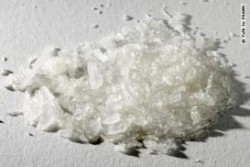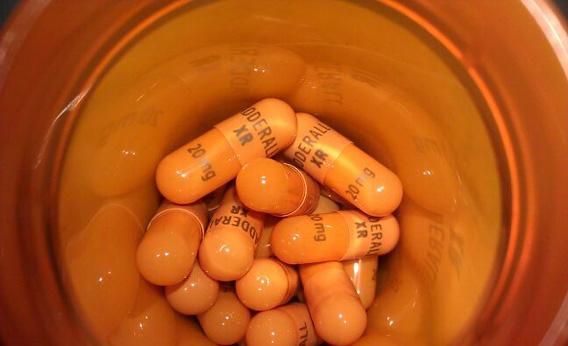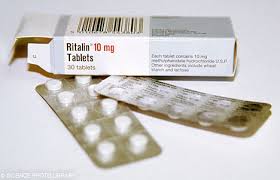What Meth Addiction Recovery is Really Like
Meth addiction recovery can be a long and painful process with some effects lasting for weeks, months, or indefinitely. Meth addicts are often poly-substance abusers, experience psychological disorders or compromised physical health, and suffer social, domestic, employment, legal, and financial consequences from their use.
Although a recovering meth addict has a long road to travel, they must remember, they are not alone and there is hope.
What is Meth?

Meth can come in either powder or crystal form
Meth (methamphetamine), is a highly addictive central nervous system (CNS) stimulant that produces effects similar to cocaine, but, with a longer duration of action and sometimes, greater degree of intensity. Meth comes in a powder or crystal form which can be snorted, smoked, or injected intravenously to produce an intense euphoria and increase cognitive awareness, energy, sex drive, and self esteem.
A low dose methamphetamine medication, Desoxyn, is available in the United States, but, rarely prescribed to treat attention deficit disorders and obesity. The meth that is found on the street and abused recreationally poses the most risk to society because it is processed, illegally, in clandestine laboratories and trafficked into the country or made in makeshift home labs using a broad array of toxic chemicals. .
Individuals who use meth, regularly, take extraordinary risks with their health and often convert to the smoking or injecting methods of meth ingestion which increases their risks for addiction, overdose, and other adverse consequences. According to the National Drug Intelligence Center “the harsh chemicals used to produce methamphetamine damage the nasal passages forcing abusers to resort to smoking or injecting the drug.”
Adverse Psychological Effects
Meth addicts suffer from poor mental health that may or may not be reversible because meth is a neurotoxin thatprofoundly affects the brain and central nervous system. According to the National Institute on Drug Abuse, “In studies of chronic methamphetamine users, severe structural and functional changes have been found in areas of the brain associated with emotion and memory, which may account for many of the emotional and cognitive problems observed in these individuals.”
Some of the most devastating mental health issues involve depression, paranoia, panic, suicidal or harmful tendencies, isolation, and hallucinations that can alter the person in ways that even they may be unable to recognize. Tactile hallucinations of bugs crawling under the skin can lead to self mutilation and the scars can last a lifetime.
The long term psychological effects are the hardest to overcome because meth, literally, destroys nerve cells causing many neurological consequences that make it harder than almost any other drug to return to a normal life. Cravings, insomnia, depression, and persistent psychiatric symptoms tend to last long after the last dose, and some neurological disorders are persistent, reoccurring, or permanent.
Adverse Physical Effects
The toxic chemicals used to make meth are ingested whenever the person consumes the drug causing long term physical health consequences. Toxic fumes are another concern that impacts not only the makers and users, but, their families as well. In home labs or those referred to as “stove top” and “shake and bake” (in bottles), chemicals such as battery acid, drain cleaners, or paint thinners are common elements that can destroy the person’s appearance by rotting their teeth and gums or causing sores, burns, lesions, arterial, and organ damages.
IV meth users are at high risk of bacterial infections in their veins and arteries which can be transferred to all other areas of their bodies. Botulism, gangrene, injection site infections, HIV AIDs, and hepatitis are debilitating problems that can tremendously impact how the person will need to go about the rest of their life.
The meth addict who has been severely afflicted by these consequences will find it difficult regain their senses of self esteem and confidence, to work or go to school, to cope with their addiction, and resist relapse without making some major changes in their life. Meth addiction recovery is not, simply, about stopping the use of meth, it’s about creating a new life that makes it easier not to use.
Getting Help
Meth addiction recovery involves getting support and help from others because these individuals are highly vulnerable to depression, melancholy, isolation, suicide, and relapse long after they stop using meth. According to the National Institute on Drug Abuse, “there are currently no medications that counteract the specific effects of methamphetamine or that prolong abstinence from and reduce the abuse of methamphetamine by an individual addicted to the drug.”
Meth addiction treatment remains the best course of a successful outcome where:
- Detox can be completed in a safe comfortable manner encouraging treatment retention.
- Counseling and behavioral therapies can support and guide the person into their recovery plans and help them acquire skills and techniques to maintain abstinence.
- Psychosocial services can help the addict and their families rebuild their lives by providing services and resources for special needs, housing, employment, education, vocational, medical, and psychiatric care.
- Aftercare and relapse prevention services can remain available.
Making the Changes
Meth addiction recovery is a chance for a new life that requirescontinuous changes, big and little, to remain abstinent, healthy, and satisfied. It may be that, some changes are more rewarding than others, and some may have slow beneficial effects, but, staying on the recovery path is the only way toward hope, peace, and freedom.
The some of the best recovery steps involve:
- Environmental and social changes where reminders of use do not exist and refraining from use is made easier.
- Taking care of health, relaxing, and avoiding emotional “triggers”
- Staying busy and productive
- Using positive and encouraging support networks and keeping communications open.



